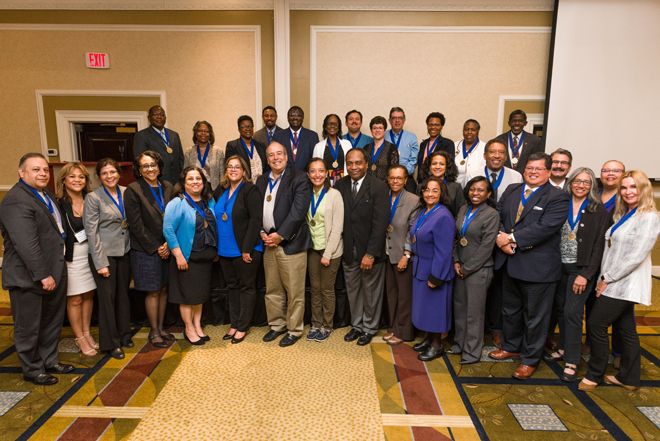Dr. Charmaine Stewart receives national honor in mentoring from NIH


Charmaine Stewart, MD, associate professor (CHS), Gastroenterology and Hepatology, was honored at the 15th Annual Meeting of the Network of Minority Health Research Investigators (NMRI) with an announcement that she has been selected for the NMRI Medallion.
The NMRI, which was established by the Office of Minority Health Research Coordination at the National Institute of Diabetes and Digestive and Kidney Diseases (NIDDK), is a communication network. The Medallion award recognizes and exemplifies an individual’s highest commitment and many years of significant service, dedication and contribution to NMRI while supporting the missions of the National Institute of Diabetes and Digestive and Kidney Diseases (NIDDK) and the National Institutes of Health (NIH) to encourage and facilitate participation of members of underrepresented racial and ethnic minority groups in biomedical research around the country. The goal of the effort is to enhance health, lengthen life, and reduce illness and disability for historically underrepresented minorities.
The NMRI network uses structured mentorships and workshops to facilitate guidance of early-career research investigators by successful, well-established investigators. Mentors focus on nurturing mentees' skills in areas such as grant writing, networking, program establishment, negotiating, responding to rejected funding proposals, and navigating transcultural interactions in minority health research.
Dr. Stewart's research has focused on liver transplantation of patients with non-alcoholic fatty liver disease and identification of biomarkers in patients with advanced liver disease, among other topics in hepatology. She participated in the National Women's Leadership Forum of the American Council of Education and completed training at Harvard School of Public Health in Leadership Development for Physicians in Academic Health Centers.
Photo caption: Medallions Award Ceremony during the celebration of NMRI’s 15th Anniversary. Photo courtesy of NMRI/NIH-NIDDK.
Resources: